Below is a collection of children’s nursery rhymes and songs. The original Hindi is provided along with an English translation. You can find a “play” button underneath the image for each selection to hear a recording of it being recited. Each entry also has a vocabulary list and some contextual/grammar notes to help you decipher its meaning. Enjoy!

अक्कड़ बक्कड़
अक्कड़ बक्कड़ बम्बे बो
अस्सी नब्बे पूरे सौ
सौ में लगा धागा
चोर निकल के भागा
Akkad, Bakkad Bombay bo
Eighty, ninety, a full one hundred
A thread is attached to the hundred
A thief left and ran
| अस्सी | (adj.) eighty |
| नब्बे | (adj.) ninety |
| पुरा | (adj.) full, complete |
| सौ | (adj.) one hundred |
| धागा | (noun, m.) a thread |
| चोर | (noun, m.) a thief |
| निकलना | (verb) to come out of something; निकालना = to remove, take out |
| भागना | (verb) to run |
This nursery rhyme makes frequent use of the subjunctive, a verbal form that This poem is the story of two friends, Akkad and Bakkad, who want to go to Mumbai (Bombay). In order to go, they collect their money together totaling ₹100. They tie it together with a thread, but a thief undoes it and runs off with the money. Like many nursery rhymes (e.g., eenie meenie miney mo), the first line is somewhat nonsensical and serves to set up the rhyming scheme. This rhyme has many versions, one of the versions is given below. This one is sung by kids to pick a player to start a game.
अक्कड़ बक्कड़ बम्बे बो
अस्सी नब्बे पूरे सौ
सौ में लगा धागा
चोर निकल के भागा
रानी आई बोली बिस्किट खाओगे ?
चोर बोला, वॅरी वॅरी गुड़

मछली जल की रानी है
मछली जल की रानी है
जीवन उसका पानी है
हाथ लगाओ तो डर जाएगी
बाहर निकालो तो मर जाएगी
पानी में डालो तो तैर जाएगी
A fish is the queen of the water.
Water is her life.
If you touch her, she will become afraid.
If you take her out, she will die.
If you put her in the water, she will swim.
| मछली | (noun, f.) fish |
| जल, पानी | (noun, m.) water |
| रानी | (noun, f.) queen |
| जीवन | (noun, m.) life |
| हाथ | (noun, m.) hand |
| लगाना | (verb) to apply, attach; हाथ लगाना - to touch |
| डर | (verb) to become afraid; compound verb with डरना and जाना |
| बाहर | (adverb) outside |
| निकालना | (verb) to take out, to remove |
| मर | (verb) to die; compound verb with मरना and जाना |
| डालना | (verb) to add to, to place in |
| तैर जाना | (verb) to go swimming; compound verb with तैरना and जाना |
This nursery rhyme makes frequent use of the subjunctive, a verbal form that communicates sentiments like should, would, might, etc. Sentences using the subjunctive mood often take the form of “if…then…” statements. “If you touch the fish, it will become afraid.” In Hindi, the first clause (the “if” part) of these types of statements will contain the subjunctive verb and may or may not contain a word equivalent to the English “if” (Hindi: अगर, यदि, etc.).
The second clause (the “then” part) will almost always contain the word तो (then).
The subjunctive is formed in Hindi by removing the गा / गे / गी endings from the future form of the verb. Examples from this reading all have the implied subject of तुम (you).
Future form Subjunctive Form
(तुम) लगाओगे → लगाओ
(तुम) निकालोगे → निकालो
(तुम) डालोगे → डालोगे
This nursery rhyme has many examples of compound verbs with जाना (to go). Various forms of जाना are added to verb roots to convey a sense that there is some change in a state of action. For example, डर जाना has the underlying sense of डरना (to be afraid), but communicates that the fish has become afraid (i.e., that it was at one point not afraid, but now is afraid).
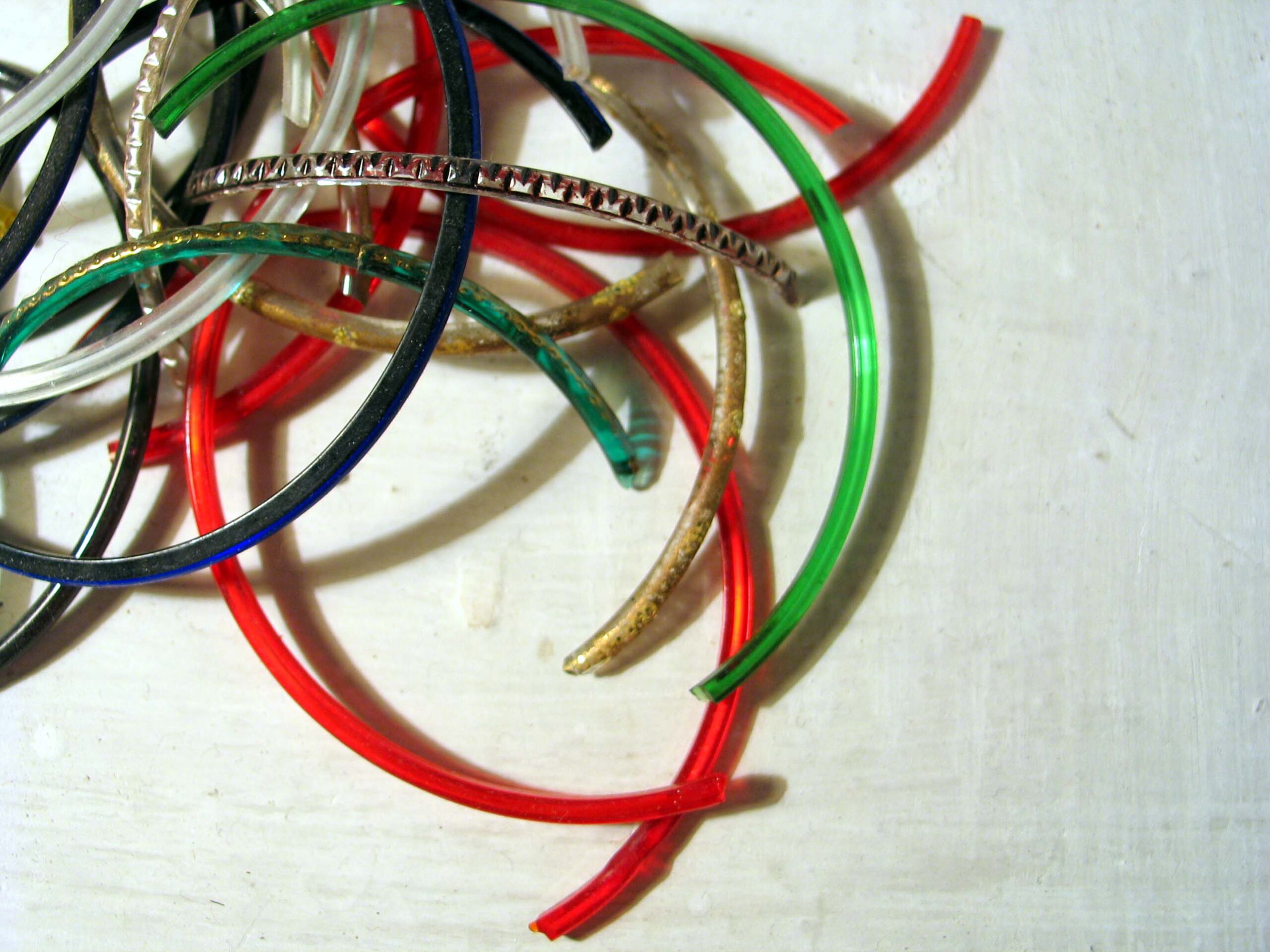
आओ मिलो शीलो शालो
आओ मिलो शीलो शालो
कच्चा धागा रेस लगा लो
दस पत्ते तोड़े
एक पत्ता कच्चा
हिरण का बच्चा
हिरण गया पानी में
पकड़ा उसकी नानी ने
नानी गयी लंडन
वहाँ से लाई कंगन
कंगन गया टूट
नानी गयी रूठ
नानी को मनाएँगे
रस मलाई खाएँगे
रस मलाई अच्छी
हमने खाई मच्छी, मच्छी में था काँटा
तेरा मेरा चाँटा, चाँटा लगा ज़ोर से
हमने खाए समोसे, समोसे बड़े अच्छे
नानीजी नमस्ते
Come and meet sheelo-shaalo
Thin threads, let’s race
[We] tore off ten leaves
One leaf was unripe
The deer’s baby
The deer went into the water
It’s (maternal) grandma caught it
Grandma went to London
From there she brought a bangle
The bangle broke
Grandma sulked
We’ll console Grandma
We’ll eat ras malai
Ras malai is yummy
We ate some fish, in the fish was a bone
A slap for you and me, the slap landed hard
We ate some samosas, the samosas were really good
Namaste, (maternal) Grandma
| शीलो-शालो | nonsense words |
| कच्चा | (adj.) raw, weak, thin, new, unripe |
| धागा | (noun, m.) a thread |
| पत्ता | (noun, m.) a leaf, a page; something shaped like a leaf |
| तोड़ना | (verb) to break |
| हिरण | (noun, m.) a deer; also written हिरन (note: हिरण also means “gold”) |
| पकड़ना | (verb) to catch |
| कंगन | (noun, m.) a bangle, a bracelet |
| टूट जाना | (verb) to break; compound verb of टूटना and जाना |
| रूठ जाना | (verb) to sulk; compound verb of रूठना and जाना |
| मनाना | (verb) to celebrate, to console; X को मनाना = to console X |
| रस मलाई | (noun, f.) a sweet curd dish soaked in cream |
| मच्छी | (noun, f.) a fish = मछली |
| काँटा | (noun, m.) a thorn, a fish’s bone |
| चाँटा | (noun, m.) a slap |
| ज़ोर से | (adv.) loudly, intensely; here: hard |
| बड़ा अच्छा | (adj.) really good; बड़ा typically means “big” |
Poetry allows one to break many conventions of grammar and word order or typical spoken language. There are several examples of jumbled up word order in Aao Milo Sheelo Shaalo. Take, for instance, the lines “कंगन गया टूट” and “नानी गयी रूठ.” Both of these lines contain compound verbs with जाना: टूट गया (broke) and रूठ गयी (sulked). Depending on the intent of the speaker, it might be a little unusual to say गया टूट in place of टूट गया or गयी रूठ in place of रूठ गयी in spoken Hindi. Yet, that’s exactly what we get in this poem. Poetry and the emphasis it has on meter and rhyme allows for an increased flexibility in how the words appear. The compound verbs are jumbled in order to fit this rhyme scheme (or near rhyme; टूट isn’t a perfect fit with रूठ due to the difference in aspiration, but close enough!).

पोषम पा
पोषम पा भई पोषम पा
डाकिये ने क्या किया
सौ रूपये की घड़ी चुराई
आठ आने की रबड़ी खाई
अब तो जेल में जाना पड़ेगा
जेल का खाना खाना पड़ेगा
जेल का पानी पीना पड़ेगा
अब तो जेल में जाना पड़ेगा
पकड़े गए, पकड़े गए, पकड़े गए !
Posham pa, friend, posham pa
What did the postman do?
He stole a 100-rupee watch
He ate eight cents worth of rabri
Now he’ll have to go to jail
He’ll have to eat jail food
He’ll have to drink jail water
Now he’ll have to go to jail
(He) got caught, (he) got caught, (he) got caught!
| पोषम पा | nonsense words |
| डाकिया | (noun, m.) a postman |
| घड़ी | (noun, f.) a watch |
| चुराना | (verb) to steal |
| आना | (noun, m.) an anna; an old measure of currency equal to 1/16 of a rupee |
| रबड़ी | (noun, f.) a thick, sweetened milk |
| पकड़े जाना | (verb) to get caught; passive form of पकड़ना |
There are particular ways of conveying in Hindi that somebody should do something, has to do something, or must do something. Generally speaking, they are चाहिए, होना, and पड़ना respectively. होना and पड़ना can be used in all tenses. For होना, examples are हुआ, है, होता है, and होगा. Examples for पड़ना include पड़ा, पड़ता है, and पड़ेगा. While होना and पड़ना can both mean “have to” do something, पड़ना usually conveys a slightly stronger compulsion than होना. For चाहिए, you can change tense by adding the appropriate form of होना (e.g., चाहिए था, चाहिए होगा; present tense only requires चाहिए). Note that with noun X, चाहिए takes the meaning of “wants X” while, with verb X, चाहिए takes the meaning of “should do X.” All of these words require that you add को to the person that is subject to the compulsion. A few examples:
मुझे कम चाय पीनी चाहिए ।
I should drink less chai.
नवीन को रोज़ पढ़ाई करनी चाहिए थी ।
Naveen should have studied daily.
राजेश को कल स्कूल जाना होगा ।
Rajesh will have to go to school tomorrow.
नम्रता को अकसर सुबह साथ वजे उठना होता है ।
Namrata usually has to wake up at seven o’clock in the morning.
क्या तुमको पिछले हफ़्ते एक नयी किताब ख़रीदनी पड़ी ?
Did you have to buy a new book last week?
मुझे अगले साल कॉलज में एडमिशन लेना पड़ेगा ।
I will have to take admission into college next year.

आज मंगलवार
आज मंगलवार है
चूहे को बुखार है
चुहा गया डॉक्टर के पास
डॉक्टर ने लगाई सुई
चूहा बोला ‘ऊइइइई’
Today is Tuesday
The mouse has a fever
The mouse went to the doctor
The doctor gave an injection
The mouse said ‘ooooowiiiieee’
| आज | (adverb) today |
| मंगलवार | (noun, m.) Tuesday |
| चूहा | (noun, m.) mouse, rat |
| बुखार | (noun, m.) fever |
| लगाना | (verb) to attach, to put |
| सुई | (noun, f.) needle, syringe, injection |
| सुई लगाना | (verb) to give an injection |
| बोलना | (verb) to speak, to say |
बोलना (to speak) is a transitive verb meaning “to speak” or “to say”. As a transitive verb, you might expect that you would need to use the particle ने when using it in the simple past tense like you would with करना (to do) or खाना (to eat), etc. बोलना is rather unique in that it can go either way. In the poem, we find चूहा बोला ‘ऊइइइई’, but it would also have been possible to say चूहे ने बोला ‘ऊइइइई’. Keep in mind that the subject and verb have to match in gender if you do not use ने. If our speaker in this poem were a cat (बिल्ली, a feminine noun), for instance, you’d have to say बिल्ली बोली ‘ऊइइइई’.

ऊपर पंखा चलता है
ऊपर पंखा चलता है
नीचे बेबी सोता है
सोते-सोते भूख लगी
खा ले बेटा मूंगफ़ली
मूंगफ़ली में दाना नहीं
हम तुम्हारे मामा नहीं
मामा गए दिल्ली
वहाँ से लाया बिल्ली
बिल्ली ने मारा पंजा
मामा हो गया गंजा
A fan runs up above
A baby sleeps down below
He gets hungry as he sleeps
Eat a peanut, Child
There is no nut in the peanut
I am not your uncle
Uncle went to Delhi
And brought a cat from there
The cat clawed
And uncle went bald
| ऊपर | (adverb) above, up | |
| पंखा | (noun, m.) fan | |
| चलना | (verb) to move, to function | |
| नीचे | (adverb) below, down | |
| सोना | (verb) to sleep | |
| भूख | (noun, f.) hunger | |
| भूख लगना | (verb) to be hungry | |
| खा लेना | (verb) to eat; compound verb of खाना and लेना | |
| बेटा | (noun, m.) son, child; can be used to affectionately address girl children | |
| मूंगफ़ली | (noun, f.) peanut | with or without the shell); here: the shelled peanut |
| दाना | (noun, m.) grain, speck; here: the nut inside the peanut shell | |
| मामा | (noun, m.) maternal uncle | |
| दिल्ली | (noun, f.) Delhi | |
| लाना | (verb) to bring; a fixed compound verb of लेना and जाना | |
| बिल्ली | (noun, f.) cat | |
| पंजा | (noun, m.) paw, claw | |
| पंजा मारना | (verb) to claw at | |
| गंजा | (adjective) bald |
This verse has a grammatical form consisting of a verbal participle repeated twice in a row (सोते-सोते). Repeating a participle this way gives a sense of “in the middle of doing x.” The meaning of this repeated form is close to the participle meaning, but is often used when something occurs—often abruptly—while some other action is already underway. In the example here, the child became hungry (भूख लगी) while sleeping (सोते-सोते).
सोते / सोते हुए → सोते-सोते
While sleeping in the middle of sleeping
खाते / खाते हुए → खाते-खाते
While eating in the middle of eating
दौड़ते / दौड़ते हुए → दौड़ते-दौड़ते
While running in the middle of running

दो चूहे
दो चूहे थे,
मोटे-मोटे थे
छोटे-छोटे थे
नाच रहे थे,
कूद रहे थे
खेल रहे थे
बिल्ली ने कहा, ‘मयाऊ, मयाऊ, मयाऊ’
न मौसी न
हमें मार डालोगी
फिर खा जाओगी
हम तो नहीं आएँगे
हम तो भाग जाएँगे
There were two mice,
They were really fat
They were itty-bitty
They were dancing,
They were jumping
They were playing
The cat said, “meow, meow, meow”
No, aunty, no
You will kill us
Then you’ll eat us
We won’t come
We will run away
| चूहा | (noun, m.) mouse, rat |
| मोटा | (adjective) fat |
| छोटा | (adjective) small |
| नाचना | (verb) to dance |
| कूदना | (verb) to jump |
| खेलना | (verb) to play |
| बिल्ली | (noun, f.) cat |
| कहना | (verb) to say |
| मौसी | (noun, f.) maternal aunt; here refers to बिल्ली |
| मार डालना | (verb) to kill; compound verb of मारना and डालना |
| खा जाना | (verb) to eat, to devour (especially with compound form) |
| भाग जाना | (verb) to run away, to escape |
On two occasions, this verse makes use of repeated adjectives (मोटे-मोटे and छोटे-छोटे). Repeating adjectives in this way lays extra stress on the meaning of those adjectives. For example, मोटा means fat but मोटा-मोटा means really fat. Likewise, छोटा means small but छोटा-छोटा means tiny.
When you add the verb डालना to a verb stem, it stresses the underlying verb. The underlying verb from the example in this reading is मारना (to kill). While it would still make grammatical sense to say हमें मारोगी instead of हमें मार डालोगी, the latter more effectively communicates the severity of the verb “to kill.”
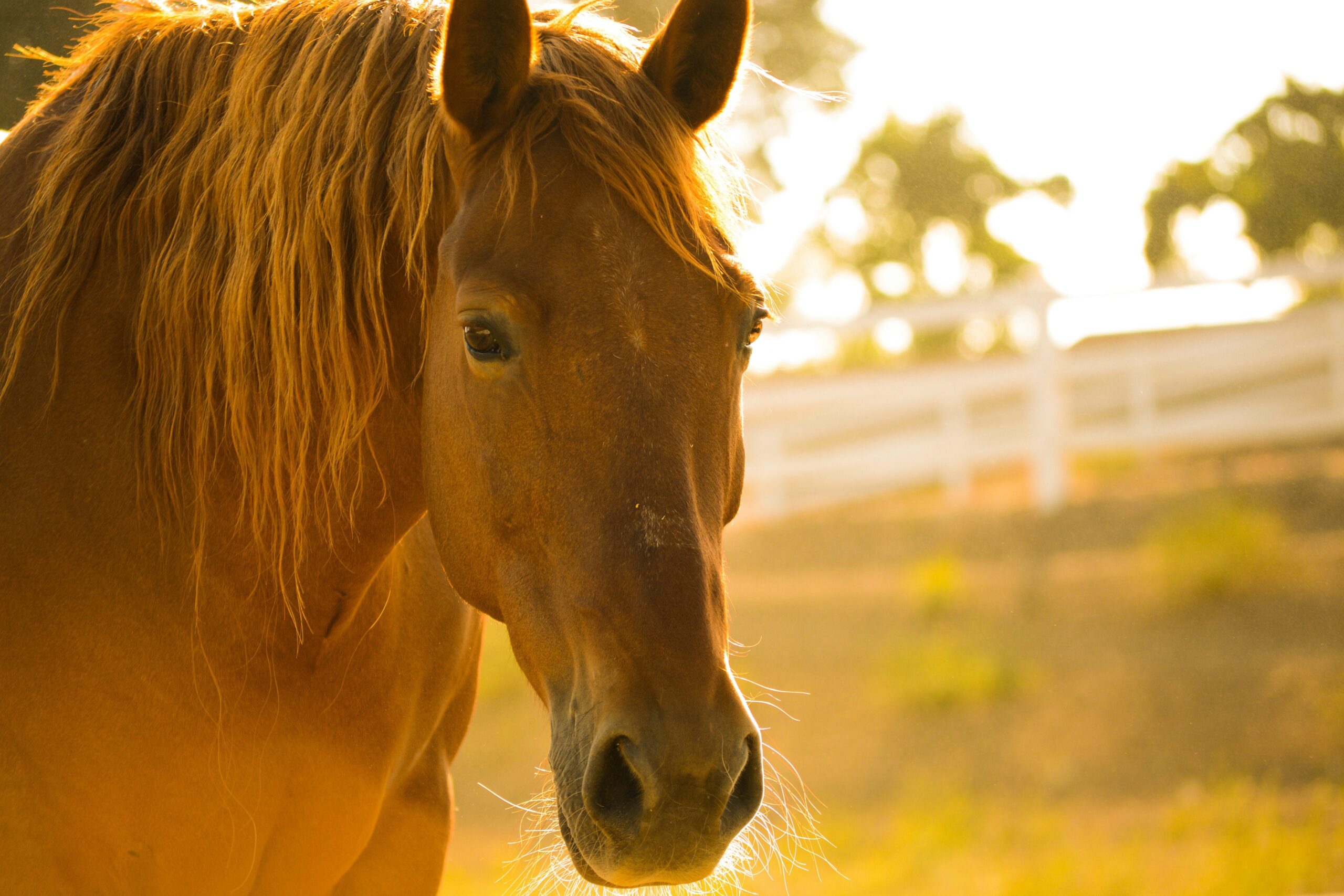
लकड़ी की काठी
लकड़ी की काठी
काठी पे घोड़ा
घोड़े की दुम पे जो मारा हथौड़ा
दौड़ा दौड़ा दौड़ा घोड़ा दुम उठा के दौड़ा
घोड़ा पहुँचा चौक में
चौक में था नाई
घोड़े जी की नाई ने हजामत जो बनाई
टग-बग टग-बग, टग-बग टग-बग
घोड़े जी की नाई ने हजामत जो बनाई
दौड़ा दौड़ा दौड़ा घोड़ा दुम उठा के दौड़ा
घोड़ा था घमंडी, पहुँचा सब्जी मंडी
सब्जी मंडी बरफ़ पड़ी थी
बरफ़ में लग गई ठंडी
टग-बग टग-बग, टग-बग टग-बग
दौड़ा दौड़ा दौड़ा घोड़ा दुम उठा के दौड़ा
घोड़ा अपना तगड़ा है
देखो, कितनी चरबी है
चलता है महरौली में
पर घोड़ा अपना अरबी है
बाँह छुड़ा के दौड़ा
दौड़ा दौड़ा दौड़ा घोड़ा दुम उठा के दौड़ा
Wooden saddle
Horse on the saddle
As a hammer hit the horse on its tail
The horse ran and ran and ran; lifted its tail and ran
The horse arrived at the city square
A barber was at the city square
The barber gave the horse a shave
Click-clack click-clack, Click-clack click-clack
Since, the barber gave the horse a shave
The horse ran and ran and ran; lifted its tail and ran
The horse was proud, he arrived at the vegetable market
Snow had fallen at the vegetable market
He got cold in the snow
Click-clack click-clack, Click-clack click-clack
The horse ran and ran and ran; lifted its tail and ran
My horse is very strong
Look at how much fat it has
He goes around in Mehrauli
But my horse is from Arabia
He broke his legs free and ran
The horse ran and ran and ran; lifted its tail and ran
| लकड़ी | (noun, f.) wood |
| काठी | (noun, f.) saddle (especially one made of wood) |
| घोड़ा | (noun, m.) horse |
| दुम | (noun, f.) tail |
| पे | (adv.) on; a colloquial form of पर |
| मारना | (verb) to hit, to strike |
| हथौड़ा | (noun, m.) hammer |
| दौड़ना | (verb) to run |
| उठाना | (verb) to lift up, to raise; उठना= to rise up, get up |
| पहुँचना | (verb) to arrive |
| चौक | (noun, m.) a city square, intersection |
| नाई | (noun, m.) barber |
| हजामत | (noun, f.) shaving, a shave; हजामत बनाना to shave |
| टग-बग | onomatopoeia for the sound of a horse walking |
| घमंडी | (adj.) proud, arrogant |
| सब्जी मंडी | (noun, f.) vegetable market |
| बरफ़ | (noun, f.) ice, snow; also spelled बर्फ़ |
| पड़ना | (verb) to lie, to fall ; बरफ़ पड़ी थी snow had fallen |
| लग जाना | (verb) to feel; compound verb of लगना and जाना |
| ठंडी | (adj.) cold |
| तगड़ा | (adj.) strong, sturdy |
| चरबी | (noun, f.) fat; also spelled चर्बी |
| महरौली | (noun, f.) Mehrauli; an area in South Delhi |
| पर | (conj.) but |
| अरबी | (adj.) Arabian, Arabic |
| बाँह | (noun, m.) upper arm/leg (in the case of a horse) |
| छुड़ाना | (verb) to release, to break free , छोड़ना = to leave, release |
The reflexive pronoun अपना (own) can be tricky to use correctly. The basic rule to keep in mind is that it is always in reference to the subject of the sentence. Let’s say, for example, that you have a dog. If you want to express that you saw your dog, you would say:
मैंने अपने कुत्ते को देखा ।
I saw my (own) dog.
If you want to express that someone else saw your dog, you’d have to say:
उसने मेरे कुत्ते को देखा ।
He/she saw my dog.
If you were to use अपने in place of मेरे, the meaning would change drastically and the dog would now belong to the “he/she” of the sentence. It is not possible in this case for the अपना to be identifying the dog as belonging to you.
उसने अपने कुत्ते को देखा ।
He/she saw his/her (own) dog.

चोट लगेगी तो पछताओगे
सड़क बनी है लंबी-चौड़ी
उसपे जाती मोटर गाड़ी
सब बच्चे पटरी पर आओ
बीच सड़क पे कभी न जाओ
जाओगे तो दब जाओगे
चोट लगेगी तो पछताओगे
बीच सड़क पे कभी न जाओ
जाओगे तो दब जाओगे
चोट लगेगी तो पछताओगे
चोट लगेगी तो पछताओगे
The street is made long and wide
The motor car goes (drives) on it
All children come on the sidewalk
Never go in the middle of the street
If you will go there then you’ll be crushed
You’ll get hurt and then you’ll regret it
Never go in the middle of the street
If you will go there then you’ll be crushed
You’ll get hurt and then you’ll regret it
You’ll get hurt and then you’ll regret it
| सड़क | (noun, f.) street; road |
| बनना | (verb) to be made; बनी (past participle) made, agrees with सड़क |
| लंबी-चौड़ी | (adj.) long and wide; लंबा = long/tall, चौड़ा = wide/vast |
| मोटर गाड़ी | (noun, f.) motor vehicle |
| सब | (adj., pronoun) all |
| बच्चा | (noun, m.) child |
| पटरी | (noun, f.) sidewalk; can also mean railway tracks |
| बीच | (adv.) in the middle of |
| दब जाना | (verb) to be crushed; compound verb of दबना and जाना |
| चोट लगना | (verb) to get hurt; चोट (noun, f.) wound |
| पछताना | (verb) to regret |
This nursery rhyme makes ample use of the particle पे. It might be hard to find this word in the dictionary because it is actually a colloquialism. पे carries the same meaning as the word पर and can be used interchangeably with it so long as the context warrants some level of colloquial speech!
The particle तो also shows up at numerous points in this nursery rhyme. It very often means “then” in a sequential sense–one thing happens and then something else will happen afterwards, oftentimes as a result of the previous thing. This is what we see with the appearance of तो in चोट लगेगी तो पछताओगे (“you’ll get hurt and then you’ll regret it”). Adding to this, तो frequently appears as a part of if-then statements with the “if” (e.g., यदि, अगर, etc.) being stated explicitly or just implied. There is an implied “if” in the line जाओगे तो दब जाओगे (“[if] you will go there then you’ll be crushed”).
There is another use of तो that occurs frequently in Hindi but is not easily conveyed in English. Consider the phrase वह बाज़ार गयी (“she went to the market”). This is a pretty plain statement without a lot of alternative meanings. If you add तो to it (वह तो बाज़ार गयी), it could mean a few things depending on context. It could mean she went to the market, but the sense is that she shouldn’t have. It could also mean that she went to the market and the person inquiring about her should have known that. The list goes on. There is no simple way to describe its meaning in English, but the Hindi context generally makes the meaning clear.
Finally, तो can also be used in the sense of “so” in English. Consider this conversation:
निखिल : मैं कल स्कूल नहीं जाना चाहता हूँ ।
अम्मा : तो मैं क्या करूँ ? तुमको तो जाना ही पड़ेगा ।
Nikhil : I don’t want to go to school tomorrow
Amma : So what am I supposed to do? You’ll have to go anyway
Notice that तो appears twice in Amma’s line with two separate meanings. The first is like “so” in English, the second is laying emphasis on the fact that Nikhil has to go to school even though he doesn’t want to. The तो in this second sense might be conveyed in English by introducing “anyway” into the translation.
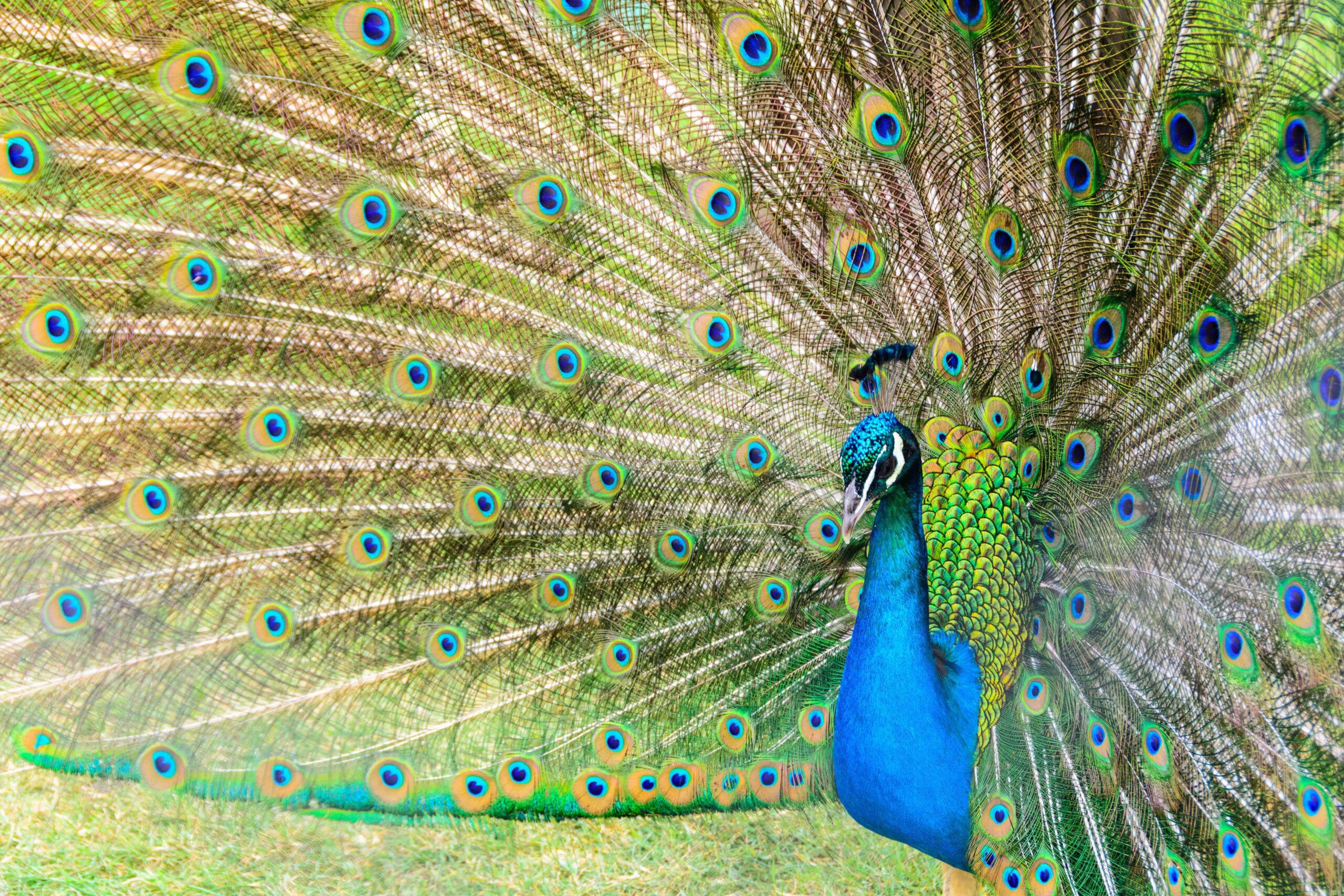
नानी तेरी मोरनी को मोर ले गए
- नानी तेरी मोरनी को मोर ले गए
- Vocabulary
- Relative-Correlative Sentences: Using जो-वह
- खाके पीके मोटे होके…
नानी तेरी मोरनी को मोर ले गए
बाकी जो बचा था काले चोर ले गए
नानी तेरी मोरनी को मोर ले गए
बाकी जो बचा था काले चोर ले गए
खाके पीके मोटे होके चोर बैठे रेल में
चोरों वाला डिब्बा कट कर पहुँचा सीधे जेल में
नानी तेरी मोरनी को मोर ले गए
बाकी जो बचा था काले चोर ले गए
उन चोरों की खूब खबर ली मोटे थानेदार ने
मोरों को भी खूब नचाया जंगल की सरकार ने
नानी तेरी मोरनी को मोर ले गए
बाकी जो बचा था काले चोर ले गए
अच्छी नानी प्यारी नानी रूसा-रूसी छोड़ दे
जल्दी से एक पैसा दे दे तू कंजूसी छोड़ दे
नानी तेरी मोरनी को मोर ले गए
बाकी जो बचा था काले चोर ले गए
Grandma, the peacocks took your peahen
What was left was taken by wicked thieves;
Grandma, the peacocks took your peahen
What was left was taken by wicked thieves.
They sat on the train after getting fat from eating and drinking
The railcar with the thieves cut loose and went straight to jail;
Grandma, the peacocks took your peahen
What was left was taken by wicked thieves.
The police sergeant looked after those thieves closely
And the king of the jungle also made the peacocks dance;
Grandma, the peacocks took your peahen
What was left was taken by wicked thieves.
Good grandma, lovely grandma, please stop sulking
Quickly, give us some money, leave your stinginess;
Grandma, the peacocks took your peahen
What was left was taken by wicked thieves.
| नानी | (noun, f.) maternal grandmother |
| मोरनी | (noun, f.) peahen |
| मोर | (noun, m.) peacock |
| ले जाना | (verb) to take; compound verb of लेना and जाना |
| बाकी | (adj.; noun, f.) remaining, leftover; remainder |
| बचा | (adj.) left, spared; past participle of बचना (to be saved, to be safe); same as बचा हुआ |
| काला | (adj.) wicked; also means dark, black |
| चोर | (noun, m.) thief |
| मोटा | (adj.) fat |
| बैठे | (adj.) seated; past participle of बैठना; same as बैठे हुए |
| रेल | (noun, f.) English “rail”; here: means the train itself |
| डिब्बा | (noun, m.) box, container; here: a car of the train |
| कटना | (verb) to be cut, to be released; here: to be cut loose |
| पहुँचना | (verb) to arrive |
| सीधे | (adv.) straight, directly |
| खूब | (adj.; adv.) lots of, closely |
| खबर | (noun, f.) report, news, attention; खबर लेना to watch over |
| थानेदार | (noun, m.) a police sergeant; थाना (noun, m.) police station |
| नचाना | (verb) to make dance; नाचना = to dance |
| जंगल | (noun, m.) jungle |
| सरकार | (noun, f.) government, master; जंगल की सरकार (noun, f.) “king of the jungle”, a lion |
| रूसा-रूसी | (adj.) sulking; from verb रूसना = to be displeased/angry, to sulk |
| छोड़ देना | (verb) to leave, give something up; compound verb of छोड़ना and देना |
| जल्दी से | (adv.) quickly, right away |
| पैसा | (noun, m.) money, a coin |
| कंजूसी | (noun, f.) stinginess |
The relative-correlative structure allows you to link two clauses–a dependent and an independent clause–that share a common detail. In English, for instance the phrase “You have the book that I need” is actually made up of two separate ideas: “You have a book” and “I need that book.” The “You have a book” part is the independent clause (it forms a complete sentence) while the “that I need” part is the dependent clause (it does not form a complete sentence and is thus dependent on the other clause to finish the idea).
In Hindi, the dependent clauses are made by using through relative markers, all of which start with the letter ज. Though not a complete list, common relative words include जो, जिस, जिन, जहाँ, and जब. Which relative marker to use depends entirely on the sentence grammar. An easy way to think about which relative marker is appropriate is to consider which of the question words (क words like कौन, क्या, कहाँ, कब, क्यों) makes sense in the context of the phrase. The correlative words–the linking word found in the independent clause–are words you’ll certainly recognize. Relative, correlative, and related question words are as follows:
| Relative | Correlative | Question Word (Interrogative) |
|---|---|---|
| जो | वह (वो), वे, यह, ये | कौन, क्या |
| जिस (singular oblique of जो) | उस, इस | किस |
| जिन (plural obl of जो) E.g., जिन्हें = जिन + को | उन, इन E.g., उन्हें, इन्हे | किन E.g., किन्हें = किन + को |
| जहाँ | वहाँ, यहाँ | कहाँ |
| जब | तब | कब |
| जितना | उतना, इतना | कितना |
Translating the example sentence above into Hindi would give us:
आपके पास किताब है । “You have a book.”
मुझे वह किताब चाहिए । “I need that book”
जो किताब आपके पास है, मुझे वह किताब चाहिए । “You have the book that I need.”
The nursery rhyme above has an example of a relative-correlative phrase that is repeated in the refrain: बाकी जो बचा था काले चोर ले गए (What was left was taken by wicked thieves). Note how there is no correlative marker in this sentence (e.g., no वह). It is rather common to leave these markers out, but know that the phrase could also be written as: बाकी जो बचा था वह काले चोर ले गए (What was left, that was taken by wicked thieves).
It is possible–and quite easy–in Hindi to link numerous verbs together in a series, making a sequence of events. In the nursery rhyme, we see the phrase खाके पीके मोटे होके चोर बैठे रेल में (They sat on the train after getting fat from eating and drinking). You’ll notice that after each verb stem (that is, a verb without the typical ना ending) comes “के”. This marker allows you to build a chain of verbs, one after another, before completing a sentence with a finite verb. Note that verbs marked with -के are note finite verbs and cannot form complete sentences. Here is a rather extreme example:
मैं उठके नहाके खाके दांत साफ़ करके स्कूल गया ।
I went to school having got up, bathed, eaten, and brushed my teeth.
It is possible to exchange the -के marker with -कर (e.g., उठकर, नहाकर, खाकर, etc.) without any difference in meaning. The only exception is with the ver करना, which only has the form करके; करकर is not possible.

चंदामामा दूर के
चंदामामा दूर के, पुए पकाएं बूर के
आप खाएं थाली में, मुन्ने को दें प्याली में
प्याली गई टूट, मुन्ना गया रूठ
लाएंगे नई प्यालियाँ, बजा बजा के तालियाँ
मुन्ने को मनाएंगे, हम दूध मलाई खाएंगे,
चंदामामा दूर के, पुए पकाएं बूर के
आप खाएं थाली में, मुन्ने को दें प्याली में
उड़नखटोले बैठ के मुन्ना चंदा के घर जाएगा
तारों के संग आँख मिचौली खेल के दिल बहलाएगा
खेल कूद से जब मेरे मुन्ने का दिल भर जाएगा
ठुमक ठुमक मेरा मुन्ना वापस घर को आएगा
Far away Uncle Moon shall cook some sugary sweet cakes
He shall eat them on a plate, and serve the darling kid in a cup
The cup broke, the darling sulked
We’ll bring new cups while clapping
We’ll console the darling one, we’ll eat milk-cream
Far away Uncle Moon shall cook some sugary sweet cakes
He shall eat them on a plate, and serve the darling kid in a cup
Sitting in a flying machine, the darling child will go to the Moon’s house
Playing hide-and-seek with the constellations, he’ll amuse his heart
From playing and jumping, when my darling’s heart is full
Dancing, my darling will come back to the home
| चंदामामा | (noun, m.) Uncle Moon; चंदा (noun, m.) moon, मामा (noun, m.) maternal uncle (mother’s brother) |
| दूर | (adj.) far |
| पुआ | (noun, m.) a type of sweet cake |
| पकाना | (verb) to cook |
| बूर | (noun, f.) a type of coarse sugar; also spelled बूरा (m.) |
| थाली | (noun, f.) a large flat dish; also refers to the meal eaten in that dish |
| मुन्ना | (noun, m.) dear, darling |
| प्याली | (noun, f.) cup, glass |
| टूट जाना | (verb) to break; compound verb of टूटना and जाना |
| रूठ जाना | (verb) to sulk; compound verb of रूठना and जाना |
| तालियाँ बजाना | (verb) to applaud, to clap |
| X को मनाना | (verb) to convince X, to persuade X |
| दूध मलाई | (noun, f.) the layer of cream that forms on top of milk |
| उड़नखटोला | (noun, m.) a “magic carpet”; उड़न (adj.) flying, खटोला (noun, m.) a small bed; flying machine |
| तारा | (noun, m.) star |
| संग | (noun, m.) grouping, collection |
| आँख मिचौली | (noun, f.) Hide-and-Seek; also spelled आँख मिचौनी |
| खेलना | (verb) to play |
| दिल | (noun, m.) heart |
| बहलाना | (verb) to amuse, to distract |
| कूद से | (adv.) while jumping |
| भर जाना | (verb) to fill up; compound verb of भरना and जाना |
| ठुमक ठुमक | (noun, f.) a distinctive and exaggerated strut, gait |
| वापस | (adv.) return, back |
There is a subtle use of the postposition को used in conjunction with verbs of motion in this nursery rhyme. The line वापस घर को आएगा means “he will come back to the house.” However, the verb आना does not typically require the use of को to suggest coming to a destination; that is implied in the verb’s meaning itself. Instead, the को in this phrase is acting, in some sense, like a definite article–“he will come back to the house”–that distinguishes this particular house from other houses.

आलू-कचालू
आलू-कचालू बेटा कहाँ गए थे?
बैंगन की टोकरी में सो रहे थे
बैंगन ने लात मारी रो रहे थे
मम्मी ने प्यार किया हँस रहे थे
आलू-कचालू बेटा कहाँ गए थे?
बैंगन की टोकरी में सो रहे थे
बैंगन ने लात मारी रो रहे थे
मम्मी ने प्यार किया हँस रहे थे
Aloo and kachaloo, where’d you go, children?
(You/we) were sleeping in a basket of eggplant
The eggplant kicked (you/we) and (you/we) were crying
Mommy comforted (you/we) and (you/we) were laughing
Aloo and kachaloo, where’d you go, children?
(You/we) were sleeping in a basket of eggplant
The eggplant kicked (you/we) and (you/we) were crying
Mommy comforted (you/we) and (you/we) were laughing
| आलू-कचालू | (noun, m.) a type of dish made of potato (आलू) and taro root (कचालू) |
| बेटा | (noun, m.) son, child; often used as a term of endearment for children of any gender |
| बैंगन | (noun, m.) eggplant |
| टोकरी | (noun, f.) basket |
| लात मारना | (verb)to kick; लात (noun, f.) a kick; लात खाना = (verb) to get kicked |
| हँसना | (verb) to laugh |
This nursery rhyme makes extensive use of the past continuous. In English, the phrases are translated as “…were sleeping”, “…were crying”, and “…were laughing”. In Hindi, the verbs for these phrases are marked by the use of the participle रहा / रही / रहे plus था / थी / थे / थीं depending on the subject of the action. You would exchange the था / थी / थे / थीं for है / हैं in the case of present continuous. Note that the verb is reduced to its stem form before the रहा / रही / रहे participle and the tense marker. Here are a couple of examples:
| जाना To go | जा रहा था He was going | जा रहा है He is going |
| जा रही थी She was going | जा रही है She is going |
|
| जा रहे थे They were going (all males or includes males) | जा रहे हैं They are going (all males or includes males) |
|
| जा रही थीं They were going (all females) | जा रही हैं They are going (all females) |
|
| पीना To drink | पी रहा था He was drinking | पी रहा है He is drinking |
| पी रही थी She was drinking | पी रही है She is drinking |
|
| पी रहे थे They were drinking (all males or includes males) | पी रहे हैं They are drinking (all males or includes males) |
|
| पी रही थीं They were drinking (all females) | पी रही हैं They are drinking (all females) |

धोबी आया
धोबी आया धोबी आया,
कितने कपड़े लाया..?
एक, दो, तीन,
एक, दो, तीन….
धोबी आया धोबी आया,
कितने कपड़े लाया..?
चार, पांच, छे,
चार, पांच, छे….
धोबी आया धोबी आया,
कितने कपड़े लाया..?
सात, आठ, नौ,
सात, आठ, नौ….
धोबी आया धोबी आया,
कितने कपड़े लाया..?
दस, दस, दस,
भाई , दस , दस , दस….
The washerman came, the washerman came
How many clothes did he bring…?
One, two, three,
One, two, three…
The washerman came, the washerman came
How many clothes did he bring…?
Four, five, six,
Four, five, six…
The washerman came, the washerman came
How many clothes did he bring…?
Seven, eight, nine,
Seven, eight, nine…
The washerman came, the washerman came
How many clothes did he bring…?
Ten, ten, ten,
Brother, ten, ten, ten…
| धोबी | (noun, m.) washerman |
| कपड़ा | (noun, m.) clothes |
| लाना | (verb) to bring; fixed compound verb of लेना (to take) and आना (to come) |
| भाई | (noun, m.) brother; often used as a term of endearment |
The nursery rhyme is centered around teaching how to count to ten. Counting to ten this way (one, two, three, four…) makes use of cardinal numbers, which are numbers that simply denote a quantity. These cardinal numbers are contrasted to ordinal numbers, which place things in some kind of relative order (e.g., first, second, third, fourth…). Below is a list of both cardinal and ordinal numbers for the first ten numbers in Hindi:
| Cardinal Number | Ordinal Number |
| एक (one) | पहला or प्रथम (first) |
दो (two) | दूसरा or द्वितीय (second) |
तीन (three) | तीसरा or तृतीय (third) |
चार (four) | चौथा (fourth) |
पाँच (five) | पाँचवाँ (fifth) |
छे (six) | छठा (sixth) |
सात (seven) | सातवाँ (seventh) |
आठ (eight) | आठवाँ (eighth) |
नौ (nine) | नौवाँ (ninth) |
दस (ten) | दसवाँ (tenth) |
Note that there are two options given for first, second, and third. The second of each of those two options (प्रथम, द्वितीय, तृतीय) is borrowed from Sanskrit and is usually reserved for more formalized contexts. The first of those options (पहला, दूसरा, तीसरा) is more typical.
Note also that the ordinal numbers are adjectival, meaning they can change to match the number and gender of the thing that it modifies. The list above only gives the masculine singular, but other options are possible. For example:
आठवीं बिल्ली मेरी है । (The eighth cat is mine)
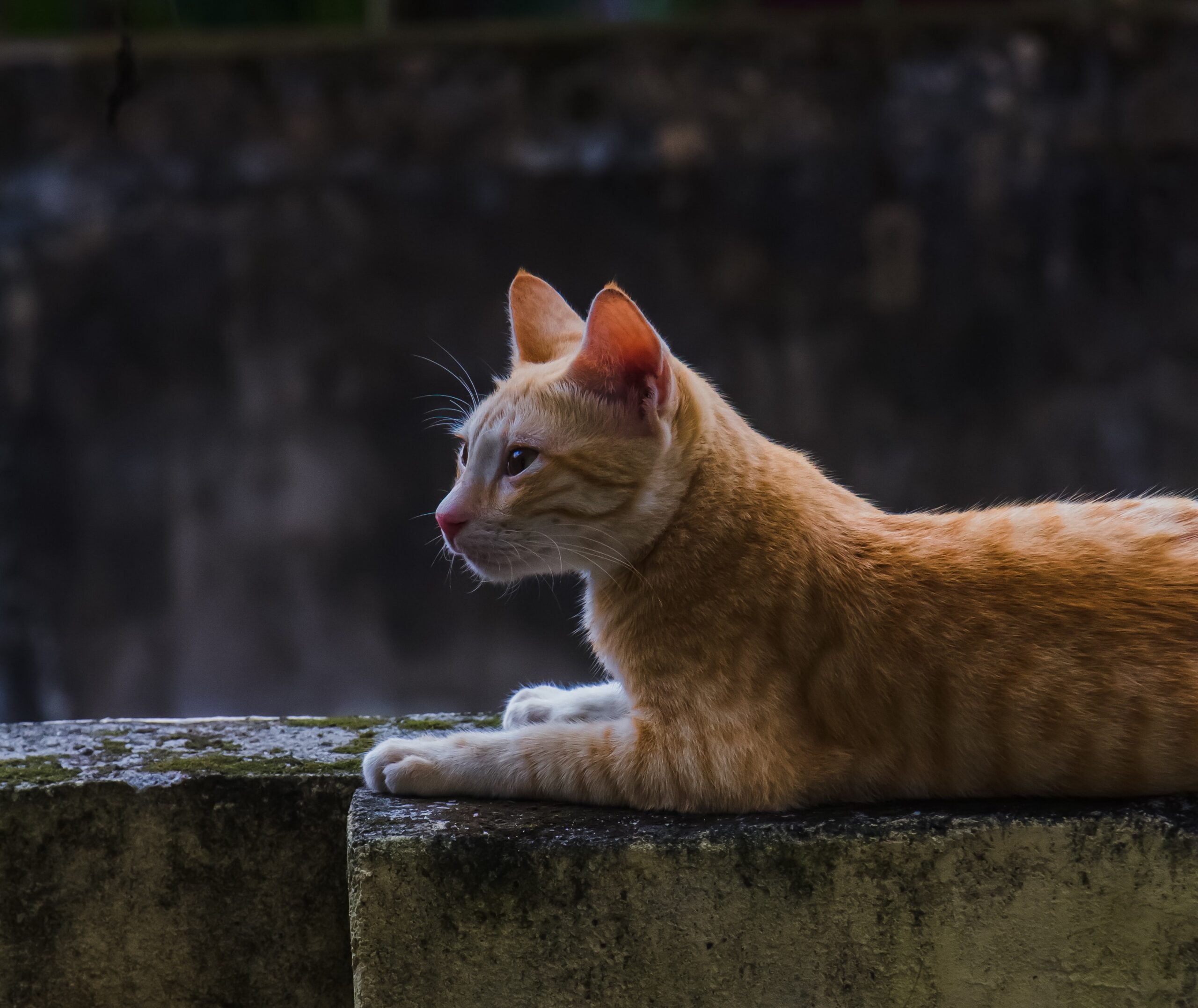
बिल्ली गई दिल्ली
बिल्ली गई दिल्ली
दिल्ली में था बंदर
लाल किले के अंदर
बंदर ने दी मूँगफ़ली
बिल्ली लेकर उसे चली
रस्ते में था भालू
भालू ने बोला, “मैं खा लूँ?”
बिल्ली ने मारा पंजा
भालू हो गया गंजा
A cat went to Delhi
In Delhi there was a monkey
Inside the Red Fort
The monkey gave a peanut
The cat took it and left
There was a bear on the way
The bear said, “Shall I eat?”
The cat clawed
The bear went bald
| बिल्ली | (noun, f.) cat |
| दिल्ली | (noun, f.) Delhi |
| बंदर | (noun, m.) monkey |
| लाल | (adj.) red |
| किला | (noun, m.) fort |
| लाल किला | (noun, m.) the Red Fort; a historical landmark in Delhi |
| X के अंदर | (adv.) inside X |
| मूँगफ़ली | (noun, f.) peanut |
| चलना | (verb) to go, to move; here: to leave |
| रस्ता | (noun, m.) way, path; also frequently spelled as रास्ता |
| भालू | (noun, m.) bear |
| बोलना | (verb) to say |
| खा लेना | (verb) to eat; a compound verb of खाना and लेना |
| पंजा | (noun, m.) paw, claw |
| पंजा मारना | (verb) to claw at |
| गंजा | (adj.) bald |
There is a line in this nursery rhyme “बिल्ली लेकर उसे चली”. The pronoun in this phrase (उसे) is an alternative form of उसको (= वह + को). There are a few pronouns that have alternative forms when they are paired with the postposition को. They are as follows:
| मुझको | मुझे |
| तुमको | तुम्हें |
| इसको | इसे |
| इनको | इन्हें |
| उसको | उसे |
| उनको | उन्हें |
| जिसको | जिसे |
| जिनको | जिन्हें |
| किसको | किसे |
| किनको | किन्हें |
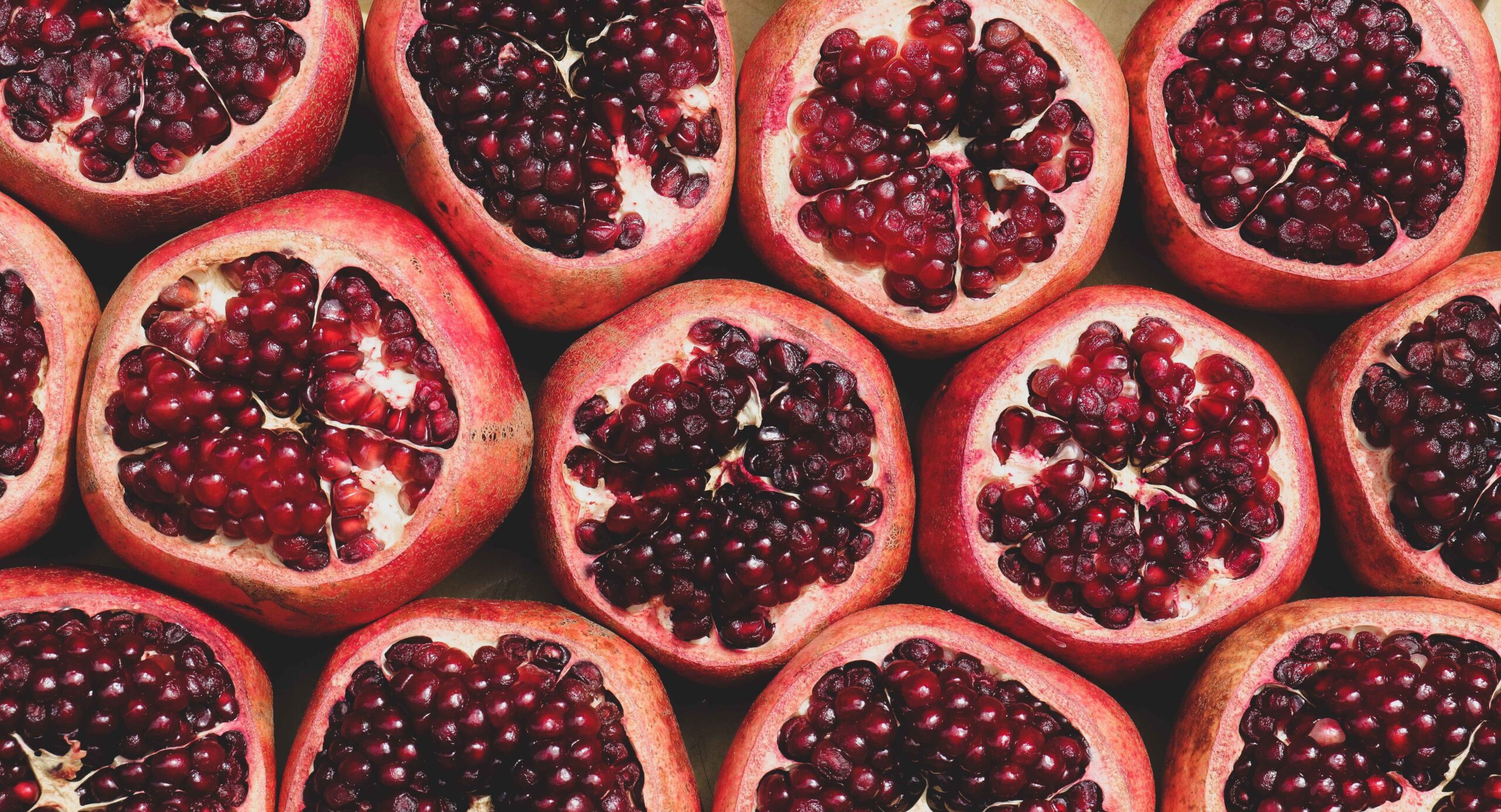
अ से अनार
अ से अनार, आ से आम
होते हैं सब मिलकर काम
इ से इमली, ई से ईख
अच्छी, अच्छी बातें सीख
उ से उल्लू, ऊ से ऊँट
एक-एक कर भर लो घूँट
ए से एडी, ऐ से ऐनक
भाग रहे दुश्मन के सैनिक
ओ से ओखली, औ से औज़ार
फले-फूले सारा संसार
अं से अंगूर, अ: से खाली
उतना खाओ जितनी थाली
a for anār, ā for ām
When we work together, all work gets done
i for imlī, ī for īkh
u for ullū, ū for ūṁṭ
One by one, take a gulp
e for eḍī, ai for ainak
The enemy soldiers are running
o for okhlī, au for auzār
May all of existence flourish
aṃ for aṅgūr, aḥ for a pause
Eat as much as is on the plate
| अनार | (noun, m.) pomegranate |
| आम | (noun, m.) mango |
| इमली | (noun, f.) tamarind |
| ईख | (noun, f.) sugar cane |
| उल्लू | (noun, m.) owl |
| ऊँट | (noun, m.) camel |
| एडी | (noun, f.) heel |
| ऐनक | (noun, f.) eye-glasses |
| भागना | (verb) to run |
| दुश्मन | (noun, m.) enemy |
| सैनिक | (noun, m.) soldier |
| ओखली | (noun, f.) a type of small mortar (i.e., of a mortar and pestle set) |
| औज़ार | (noun, m.) tool |
| फले-फूले | (adj.) flourishing, marked, pocked; past participle of फलना-फूलना |
| सारा | (adj.) all, entire |
| संसार | (noun, m.) worldly existence |
| अंगूर | (noun, m.) grape |
| खाली | (adj.) empty |
| थाली | (noun, f.) a large flat dish; also refers to the meal eaten in that dish |
The “for” in the English translation for the alphabet correlations (e.g., a for anār, etc.) is a bit misleading as a translation for से. In reality, those phrases should be something more like “from X [comes] Y.” That more literal translation using “from” is closer to what से typically means.

रोज़ सवेरे
रोज़ सवेरे उठना अच्छा
नित्य कर्म करना अच्छा
ठीक समय पर पढ़ना अच्छा
नहीं किसी से लड़ना अच्छा
It is good to get up (early) each morning
It is good to always do (your) work
It is good to study right on time
It is good to not fight with anyone
| रोज़ | (adv.) daily |
| सवेरा | (noun, m.) morning; सवेरे is an adverbial form meaning “in the morning” |
| उठना | (verb) to get up, to wake |
| नित्य | (adv.) always, regularly |
| कर्म | (noun, m.) work, duty; a more formal word for काम |
| ठीक | (adv.) precisely, exactly |
| समय | (noun, m.) time |
| पढ़ना | (verb) to study |
| लड़ना | (verb) to fight |
The word ठीक is extremely common in Hindi. Its range of meaning and grammatical flexibility is extensive. It is most often an adjective meaning “good, okay, correct,” etc. For instance, ठीक है (literally “it is okay”) is akin to the English “okay” in that it can be used as a response to numerous situations. In the reading here, ठीक is used adverbially. You’ll often hear it used in expressions of time to emphasize that something is happening at exactly the stated time. For example:
A: हमें कब पहुँचना है ? (What time should we arrive?)
B: ठीक सात बजे पहुँचें । (Please arrive at exactly seven o’clock.)
The word किस is an “oblique” question word, meaning that it only appears when followed by a postposition (से, में, पर, का/के/की, को, etc.). Depending on the context, it may be the oblique form of क्या (what) or कौन (who)—the latter being more common.
यह कौन है? → यह किसका है?
Who is this? → Whose is this?
If you change किस to किसी, you are changing the construction to an “indefinite” construction (e.g., someone, something, etc.). Importantly, this is no longer a question word.
यह किसका है? → यह किसी का है ।
Whose is this? → This is somebody’s.
Finally, you can also use these indefinite constructions to create absolute negations (nobody, nothing, never, etc.) by simply adding some negative word (नहीं, न, मत, etc.) to the clause.
यह किसी का है । → यह किसी का नहीं है ।
This is somebody’s. → This is nobody’s.
किसी से लड़ना… → किसी से नहीं लड़ना…
To fight with somebody… → To fight with nobody…
मैंने उसे कभी तो देखा है । → मैंने उसे कभी नहीं देखा ।
I have seen him/her sometime. → I have never seen him/her.

